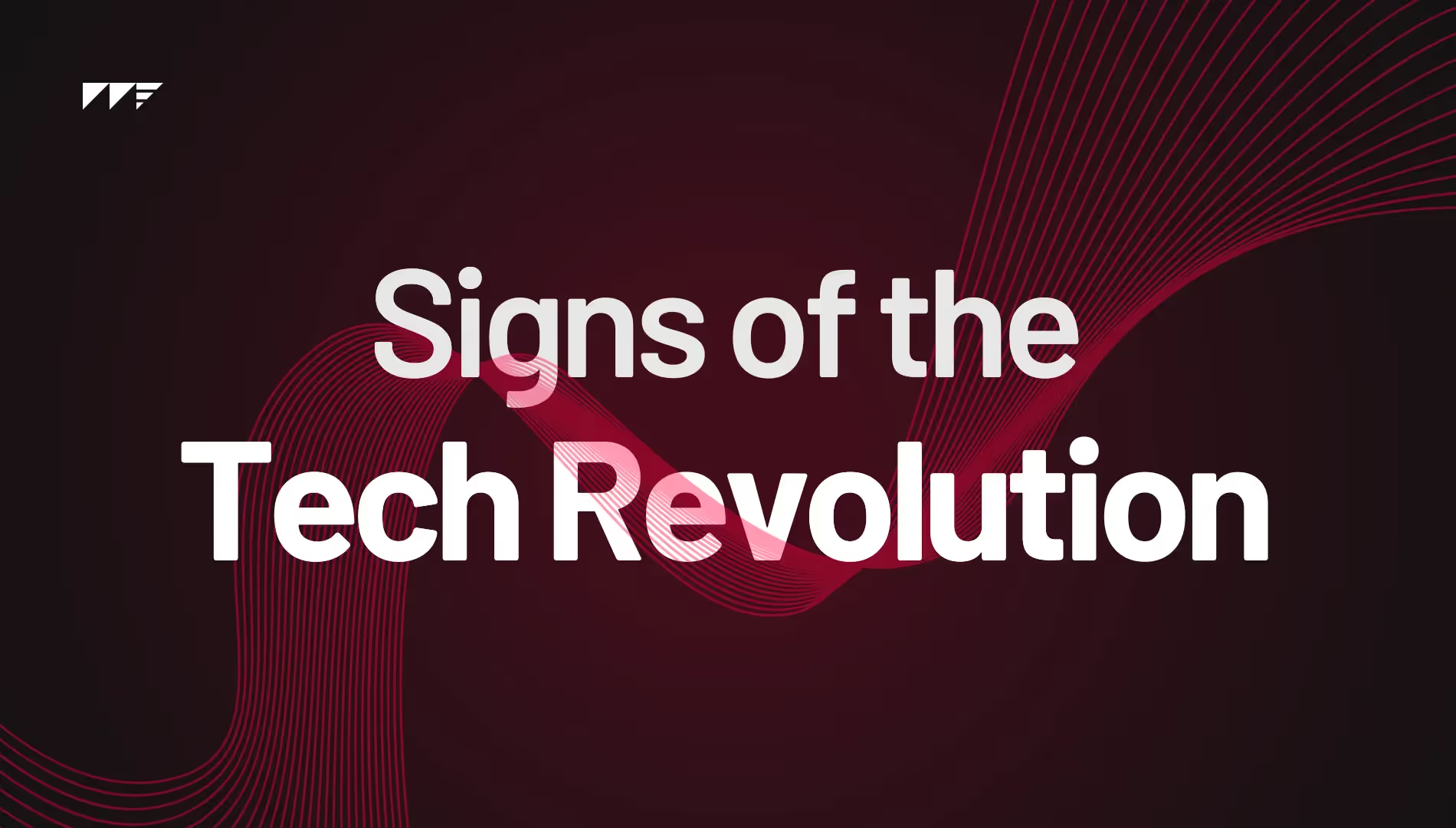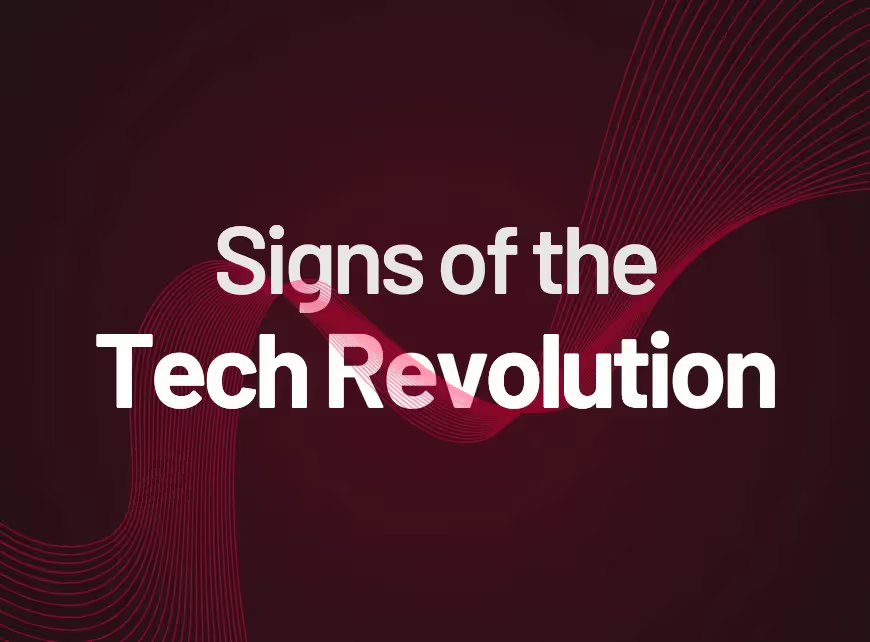Newsletter: Signs of the Tech Revolution #50

The race to AI dominance has hit a new gear with OpenAI's launch of GPT-5, backed by a staggering $340 billion annual spending spree from tech giants. The capabilities are undeniable.
But this push for efficiency is creating a messy middle with very real consequences. The same AI advancements are now automating entry-level developer roles out of existence, fundamentally changing the career path for an entire profession.
This is the AI paradox of the moment: even as we unlock tools with unprecedented power, we are simultaneously destroying the traditional pathways for building human expertise.
Let’s dive in and explore these topics.
News #1: Is the Trillion-Dollar AI Spending Boom Really Boosting the Economy?
The scale of AI investment has reached historic proportions, with tech giants like Microsoft, Amazon, and Google set to spend a staggering $340 billion this year alone. This surge has led to a fierce debate among economists: is this AI gold rush the primary engine of the US economy, or are the numbers telling a more complicated story?
By one analysis, the surge in AI capital expenditure from the top four tech companies accounted for 1.3 percentage points of the 3% US GDP growth in the second quarter. This suggests that AI spending was responsible for nearly half of all economic expansion, a trend some experts believe will power the US economy for years to come.
However, other leading economists are sounding a note of caution, pointing to several critical caveats that leaders must consider. Some argue that the AI boom looks significant only because consumer spending—the traditional backbone of the economy—is "stalling out" and setting a low bar.
A significant portion of the AI capex is spent on foreign-made components, most notably Nvidia chips. This means a large chunk of the investment may not directly stimulate the US domestic economy. Referencing the famous "Solow paradox," some experts argue that massive tech investments do not lead to immediate, measurable productivity gains across the economy.
While the investment numbers are undeniably historic, the connection to broad, sustainable economic growth is far from clear.
News #2: OpenAI Launches GPT-5, Calling It a "Significant Step" Toward AGI
OpenAI has officially launched GPT-5, the next generation of its flagship AI model, in a move that immediately resets the performance benchmark for the entire industry. CEO Sam Altman described the leap from GPT-4 to GPT-5 as analogous to the iPhone's shift to a "Retina display," claiming the new model feels like "talking to a PhD level expert in any topic."
For business leaders, GPT-5 represents a major advancement in both capability and accessibility. Key highlights from the launch include:
- Dramatically improved performance: OpenAI claims GPT-5 is significantly smarter and faster, with a 65% reduction in hallucinations compared to its predecessor.
- New tiered models: GPT-5-mini and a cheaper, faster GPT-5-nano for the API, designed to make the technology more accessible. A "GPT-5-thinking" model is also available for complex queries.
- Enhanced agentic capabilities: The model is designed to excel at "agentic tasks," meaning it can better execute long chains of instructions and effectively use external tools, a key step toward more autonomous systems.
While Altman stopped short of calling GPT-5 true AGI, he framed it as a "significant step" on that path, calling it "a model that is generally intelligent." The capabilities demonstrated by GPT-5, especially in complex coding and reasoning, represent a new baseline that will force companies to re-evaluate their own AI roadmaps and accelerate their adoption strategies.
Build Your AI Strategy With Us
Curious to see how Maxima Consulting can help you get the most out of your tech investments?
Meet with one of our consultants to learn how to implement AI Agents in a matter of weeks.
News #3: Why Tomorrow's Best Developers Won't Just Code
The rapid advance of AI assistants like GitHub Copilot and ChatGPT is causing a fundamental structural change in the software industry: "junior coding," as we knew it, is disappearing. Repetitive tasks that were once the bread and butter of entry-level developers—from basic scripting to simple layouts—are now being reliably automated.
The traditional career ladder doesn’t exist anymore. AI is automating the bottom rungs, forcing a change in the skills required from day one. The most valuable tech professionals will no longer be those who write perfect code, but those who can define a problem, understand user needs, and effectively command an AI to generate the solution. The role is evolving to look more like a product manager with deep technical expertise.
Large, specialized teams of front-end, back-end, and DevOps engineers might be replaced by a smaller teams with AI-augmented developers who can manage an entire project pipeline. Collaboration will shift from implementation details to high-level strategy and responsible AI oversight.
The developer of the future will be a hybrid thinker—part developer, part designer, part product strategist. The critical skill won't be just knowing how to code, but understanding what should be built and why.
Other News
- Musk's Neuralink will now test its brain chips in a clinical study in Great Britain - Read more
- The CEO of Apple tells staff that the AI opportunity is 'ours to grab' - Read more
- Podcasts hosted by venture capitalists are now shaping the entire tech industry's narrative - Read more
- IT employment has grown for the second month in a row despite a tepid job market - Read more
- Silicon Valley has entered its 'hard tech' era, shifting focus from consumer apps to AI - Read more
- CrowdStrike has investigated 320 cases involving North Korean IT workers in the past year - Read more
- The traditional growth model for India's massive IT sector is now under pressure - Read more
- OpenAI is now offering ChatGPT to US government workers for just $1 a year - Read more
- The new White House AI roadmap is giving CIOs a confidence boost to accelerate investment - Read more
- The massive energy demand from AI data centers is now driving a surge in fossil fuel investment - Read more
- AI chatbots are not yet a replacement for Google search - Read more
About Maxima Consulting
Maxima Consulting supports businesses in getting the most out of their technology and workforce investments through a strategic approach and continuous optimization. We empower our partners to tap into vast global talent pools and consistently deliver projects on time and within budget.
Trusted by leading finance institutions, logistics providers, innovative engineering companies, and other organizations across many industries, we make the technology drive our partners’ business goals.
Curious to see how Maxima Consulting can help you get the most out of your tech investments?
Meet with one of our consultants to see how we can help.




